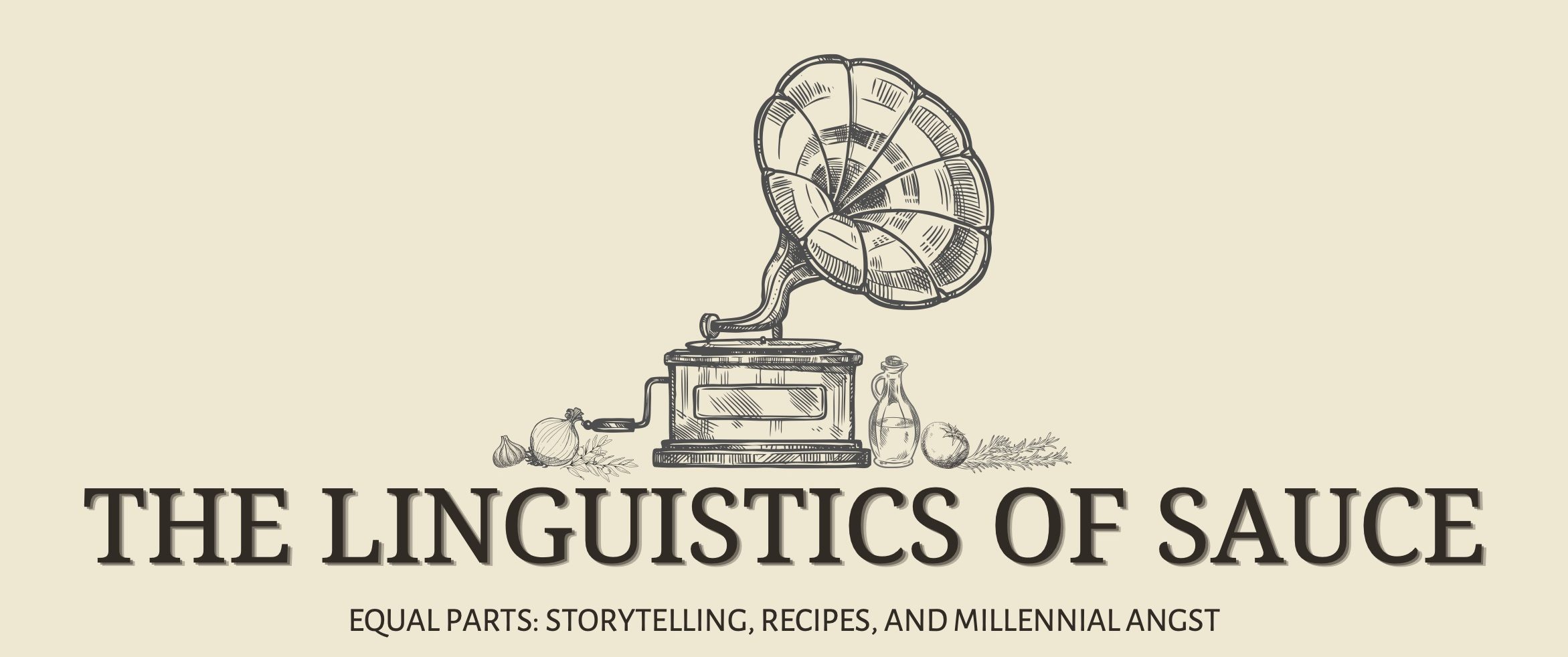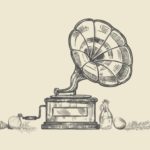My Mother’s Hands
My mother’s hands are magic.
They are long and slender, nails always clean and perfectly natural – save for the occasional trace of dirt from tending the garden. I don’t remember a summer when we didn’t at least have herbs[1]We have always pronounced herbs as it is spelled, using all the letters available: “HER-bz” – because there’s a f*cking H in it. and vegetables growing in the backyard – popping warm cherry tomatoes between my teeth with a satisfying squirt of seeds.
When I was growing up, my mother wore an emerald ring with a vintage gold band – a family heirloom. Now her finger is adorned with a modern wedding set, several diamonds embedded in the bright gold bands which encircle her finger.
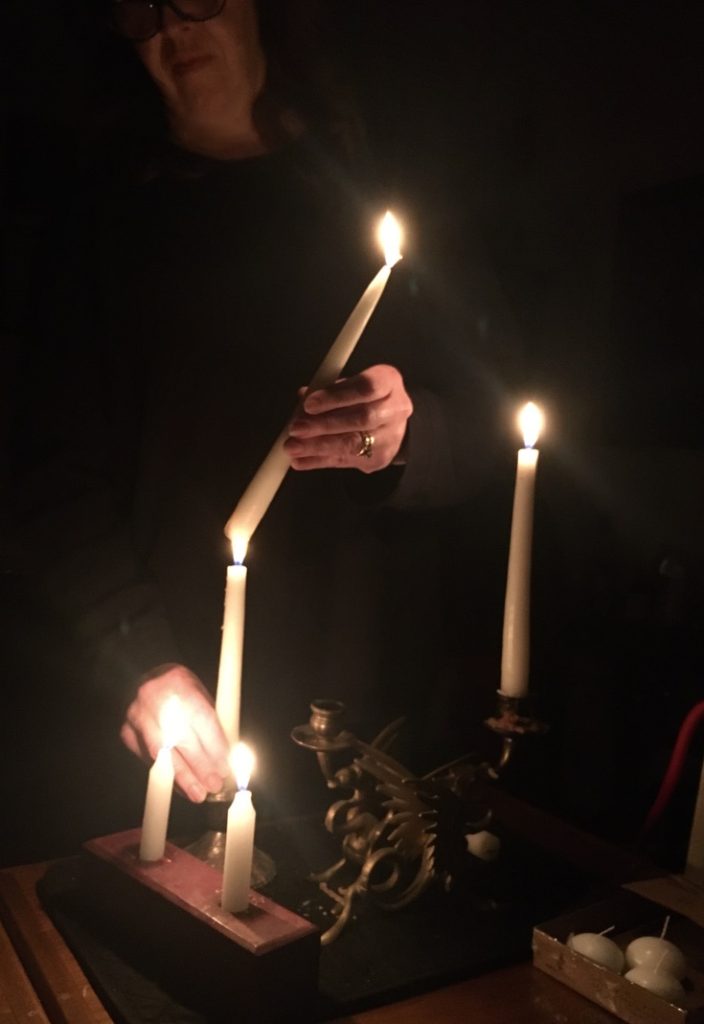
My mother’s hands tell stories.
As I climbed into bed, she would prop herself next to me, turning the pages of whatever book we were reading, so elegantly and without a pause such that even if a page ended mid-sentence she never skipped a beat continuing onto the next.
Her perfect enunciation of each syllable, a breathy but steady cadence, used to tell me the story of The Boy Who Lived, Aslan the Lion, or the Jedd in his bed – “the softest of beds in the world it is said.”[2]“He makes it from pom poms he grows on his head.”
When she reached the last few words of a chapter (or two or three), she would slow down each word, signaling the end of reading for the night, and clap the book shut with one hand and a satisfying thud.
“One more, please. Plee-yeease!” I would protest.
She chuckles. “No, no, it is time for bed. It’s get-ting late.” Each syllable punctuated, still following her reading voice rhythm. A hint of Britishism.
She could feel my anxiety about… something.
Or several things.
And I’ve never been particularly good at falling asleep when I’m supposed to.
I would think of something to say, something to spin about, something about which I had been blissfully unaware while wrapped up in her voice or the fantastical world of wherever we were for the night.
But then her magical hands would gently brush the hair off of my forehead.
“Go to sleep, honey. Everything will be better in the morning.”
And it usually was.
My mother’s hands make things.
She has hand-sewn or otherwise crafted most of my Halloween costumes from at least ages 5 through 17.
Honorable Mentions go to Xena Warrior Princess and the Ghost of Jane Austen.
(Yes, I have always been this way.)
She has quilted, she has upholstered, at times she has crocheted.
As if that wasn’t already impressive enough, my mother makes understated, effortlessly beautiful sketches.
Hummingbirds, cats, flowers.
I once asked her to sketch out an idea I had for a tattoo, partly because I wanted her to be more approving than the last time I came home with one.[3]Heather, 18 years and three days old: “So, what d’ya think?” Mum, who pauses, followed with a wilted sigh: “I spent nine months on that skin…”
But also because I love the idea of having designs on my body straight from the source: her hands.
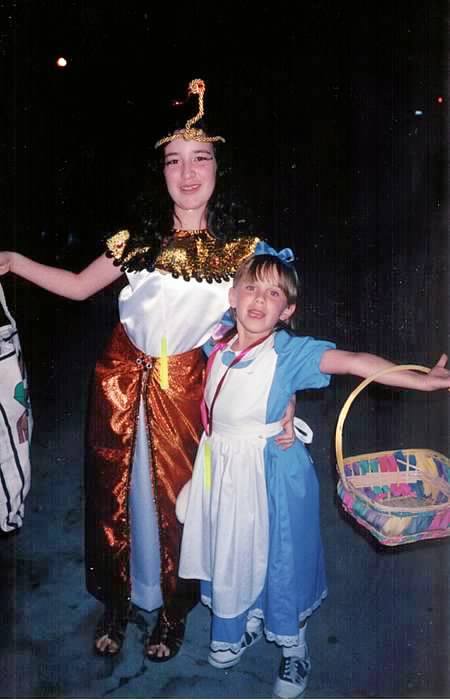
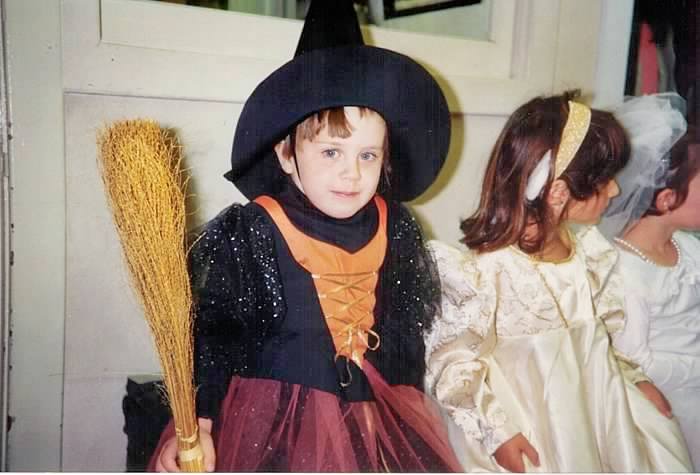
And of course, my mother’s hands are medicinal.
I’ve watched her gently stir soup with a long wooden spoon, before lifting and tapping the wet end of the spoon into the pot and placing the whole thing, scoop to handle, on top, steam wafting on either side.
I’ve seen the same long, slender fingers grab and knead dough, over and over, with a satisfying squish as it spread between her knuckles. She is an expertly elegant pie cutter and meat carver.
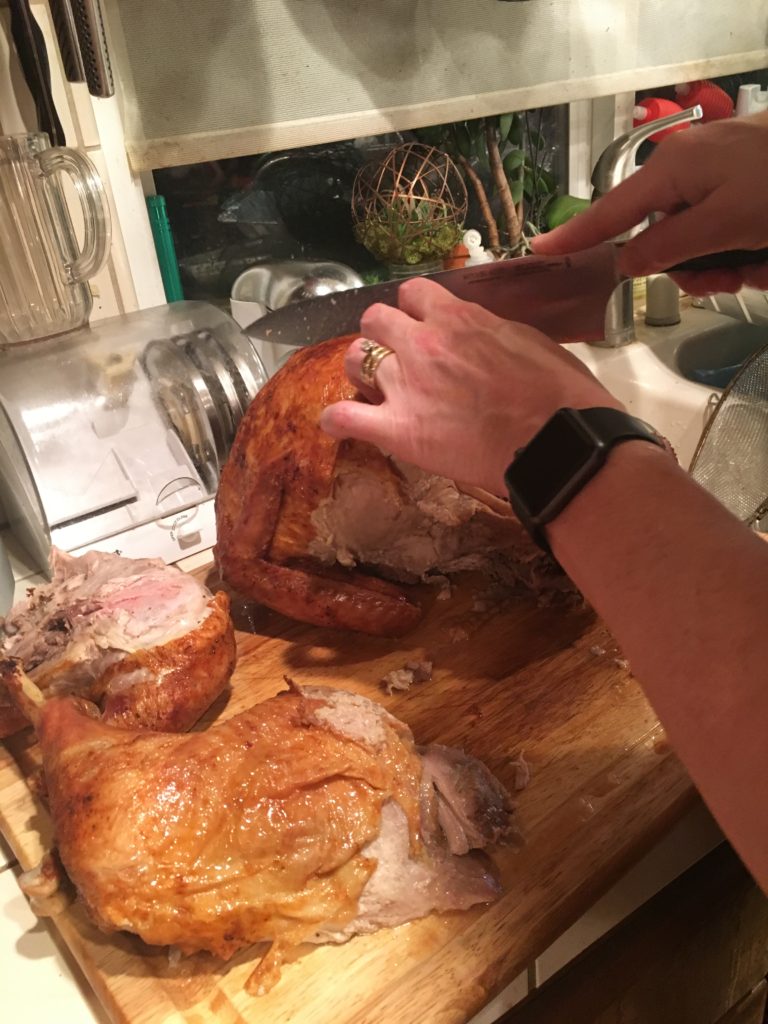
I often say I’m much better at cooking than baking – when cooking, one is allowed to proverbially “wing it” and it will still taste pretty good, whereas baking requires much more patience and, well, math.
My mother is good at both.
She will lift up the measuring spoon to eye level as she pours the oil or extract before flipping the spoon over, the ingredients cascading into the metal mixing bowl.
I just don’t have the patience.
I’ve watched her place sprigs of rosemary on top of chicken cutlets before rolling them up and wrapping them in soft kitchen twine.
A delicious dish from my childhood I think I tried making once.
Meanwhile, I think I’ve made chicken cacciatore (a dish that basically takes three ingredients and one pan) more times than I can count.
But there’s one dish of particular medicinal quality that my mother has inspired me to make multiple times, notwithstanding the patience and detail involved: “Jewish Penicillin.”
Jewish Penicillin is, for all intents and purposes, just chicken noodle soup.
But could it really be just that?
From just a whole chicken, a few vegetables, and a bit of patience manifests a golden, nutrient-rich elixir with delicious and revitalizing properties. Although technically a one-pot dish, the time and care it takes to finish this dish is not a feat undertaken by the restless or the hangry.
There is something magical about all dishes that require the cook to walk away and leave it alone, an inherent trust in the ingredients as they boil and bubble.
And boy, is it worth it.
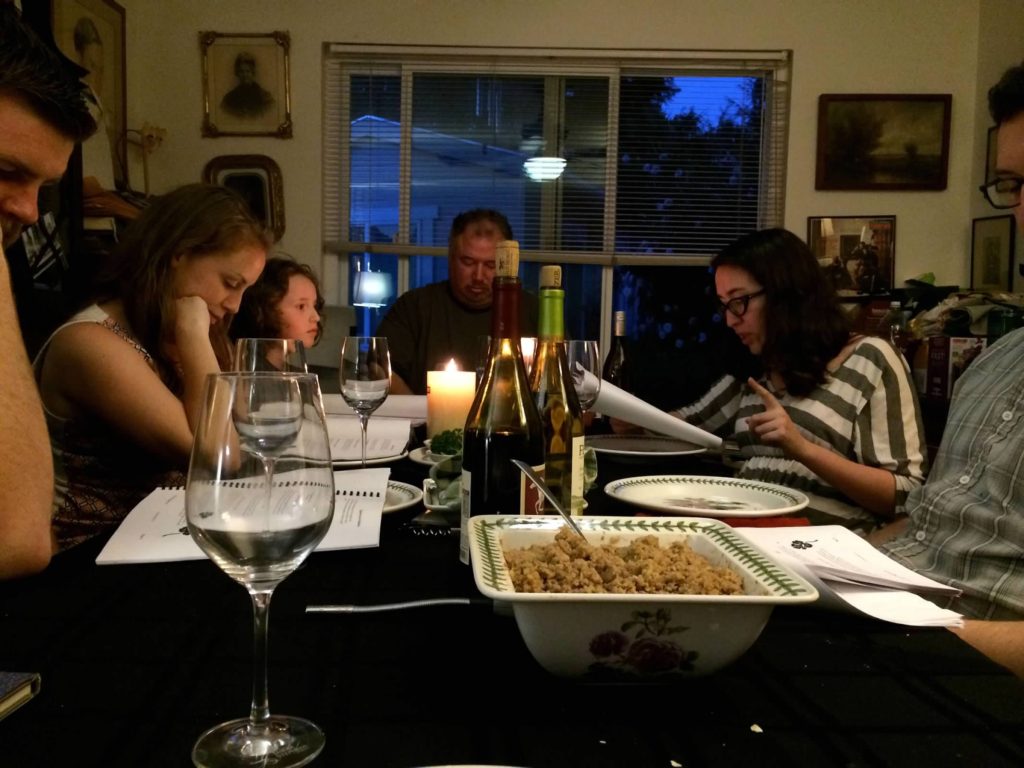
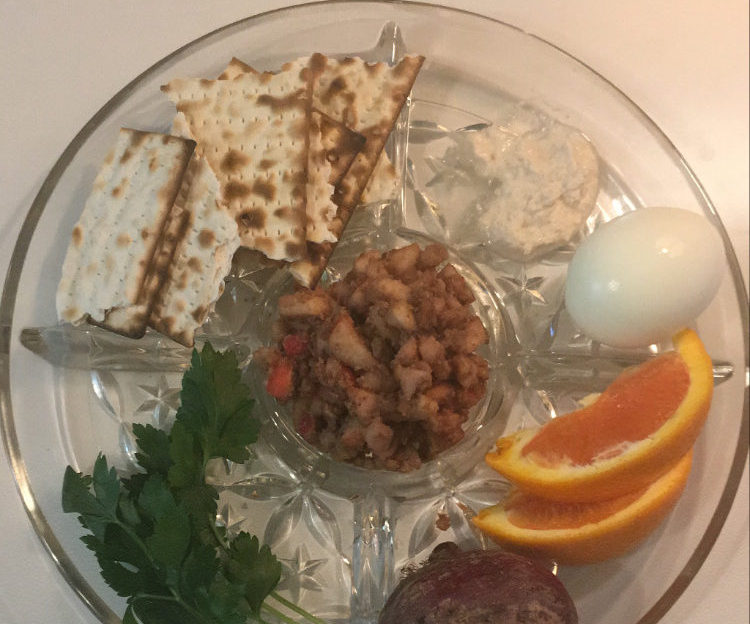
Although I didn’t necessarily “grow up” Jewish – nor did our family lean in any particular religious direction – my roots are in fact Ashkenazi.[4]Ashkenazi: an ethnic distinction referring to Jews of European, particularly Eastern European, descent.
As evidenced by the existence of this blog, I am fascinated by family, tradition, culture, and, of course, food. I have had many conversations with people all over the place about – what I think boils down to[5]Pun very much intended. – identity, which I believe we are particularly enraptured by (and often sparring over) here in America.
I’ll save my many musings on this for a book one day, but I’ll leave you with a few thoughts:
I love being Jewish. I love what being Jewish means for our family. I believe that identifying as Jewish – and, for that matter, as Italian or Irish – it allows space to do a whole bunch of things at once.
We can think about and honor our ancestors, pass down their stories and create our own.
Some of those stories are in fact recipes, each ingredient and instruction a piece of history from the time in place when the meal was first made.
I believe that pondering our identities also does something that may seem counterintuitive: it brings us together.
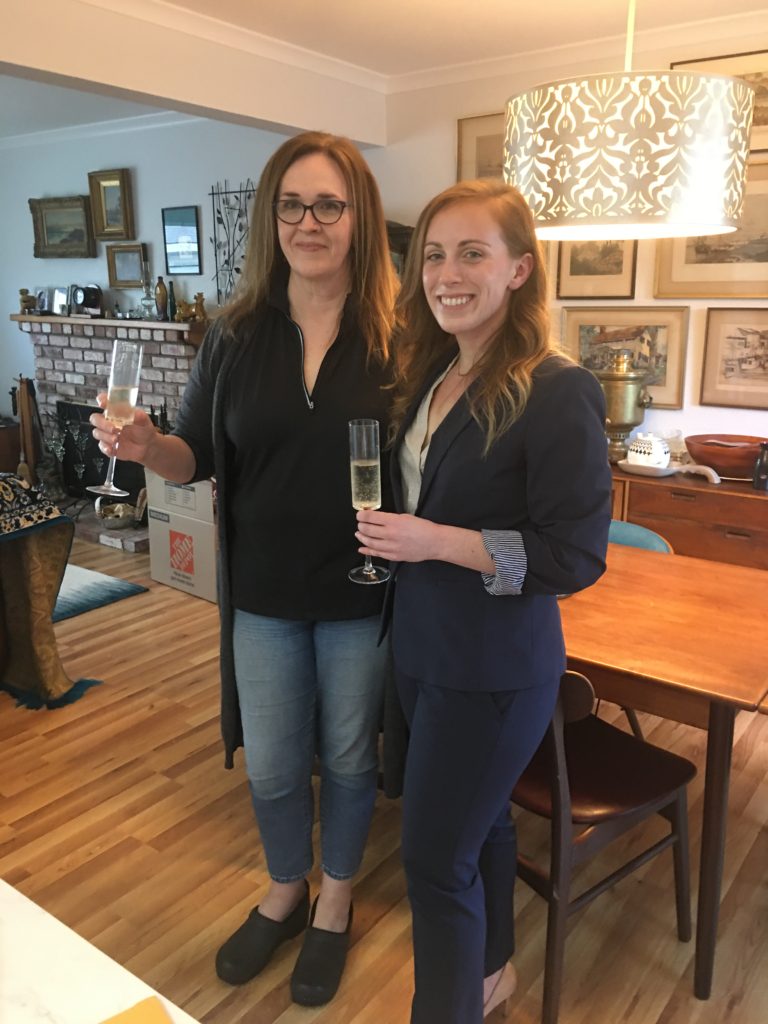
While pundits continue to argue over the merits or pitfalls of identity politics, in an ideal world, I would encourage us to celebrate our different identities.
To marvel together at how similar or how distinct and fascinating someone else’s traditions and beliefs and recipes are.
Exchange your grandmothers’ stories, and you’re guaranteed to find community in the differences.
Or at least get a good laugh.
There is magic in not fully understanding where we came from or where exactly we’re going.
For some of us, the “not knowing” may be alleviated by a faith in a divine presence.
Others perhaps rely on families for solace, or seek distraction from life’s challenges with a full social calendar, world travel, or a good book and a glass of wine.
Some of our histories aren’t necessarily good or comfy to dwell upon, but they are ours, handed down to us by our mothers, and their mothers, and their mothers before them.
Above all, make new memories, celebrate the good things, and pass down these histories to your daughters.
Being “Jewish” or any of the other identities I explore through food and stories and tradition is just my way of communicating with my family and its many branches.
It’s an opportunity to engage with moments in my family’s history I’ll never be able to experience, and educating my future generations on what makes us who we are now.
I encourage you to think about what ways your ancestors have shaped you, educated you, fed you, or healed you.
Maybe write it down.
For me, that begins with my mother’s hands – forever magical.
Need a health boost? An extra dose of nutrients? A delicious meal to feed an army?
Try your own magical hands at Jewish Penicillin.
References
| ↑1 | We have always pronounced herbs as it is spelled, using all the letters available: “HER-bz” – because there’s a f*cking H in it. |
|---|---|
| ↑2 | “He makes it from pom poms he grows on his head.” |
| ↑3 | Heather, 18 years and three days old: “So, what d’ya think?” Mum, who pauses, followed with a wilted sigh: “I spent nine months on that skin…” |
| ↑4 | Ashkenazi: an ethnic distinction referring to Jews of European, particularly Eastern European, descent. |
| ↑5 | Pun very much intended. |
